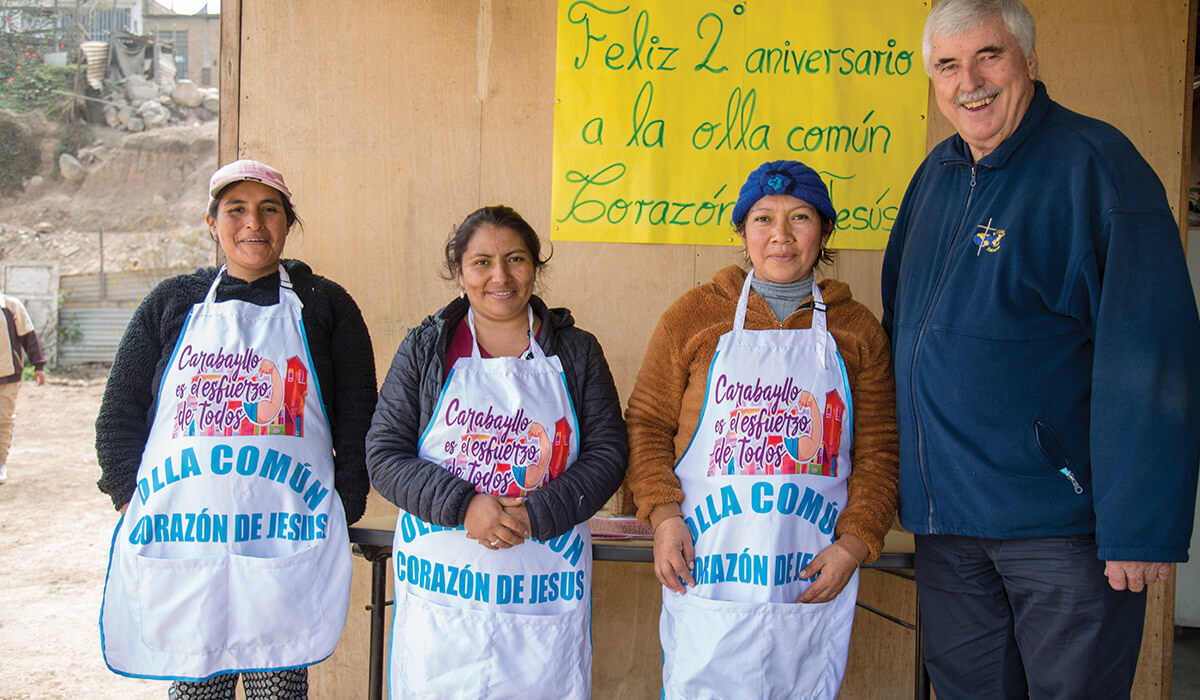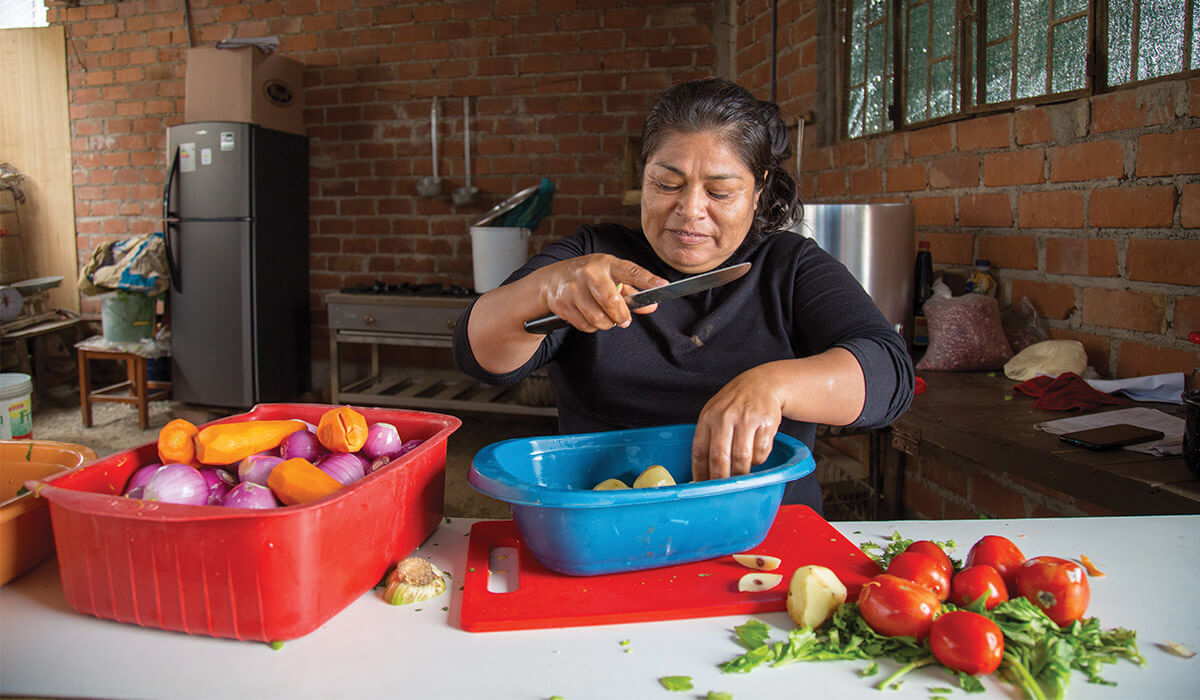 Fr Ed O'Connell with volunteers. - Photo: Fr Ed O'Connell
Fr Ed O'Connell with volunteers. - Photo: Fr Ed O'Connell
Warmi Huasi (Women’s House) is a small non-government organisation (NGO) founded in 2003 by Columban missionaries in Lima, Peru. Its story continues …
In 2020, we had completed our planning and had just begun our activities in both North Lima and Ayacucho in what we thought was going to be the best of years. Then came the pandemic in March of that year, which extended into 2021 and then into 2022. They were traumatic years for Peru. COVID-19 hit us hard. By the end of July 2022, we had almost four million cases and 214,303 deaths.
Peru has the dubious distinction of being at the top of the World Health Organization (WHO) COVID ranking, leading the world in the number of deaths associated with COVID-19. According to the World Health Organization’s report issued on 5 May 2022, 437 Peruvians per 100,000 of the population died directly or indirectly.
On a more personal note, and as a way of showing how devastating the pandemic was, of the ten members of the Warmi Huasi team, three lost either a mother or father, two lost grandparents, and all lost at least one uncle or aunt. Poverty has increased again because of the pandemic and is more widespread in rural than urban areas. In 2021, 22.3% of the population was in poverty in urban areas and 39.7% in rural ones. Likewise, extreme poverty remains concentrated in rural areas, affecting 2.1% of the urban population and 12.1% of the rural population.
The mothers at the homework clubs responded to the new crisis that the pandemic brought. Most informal sector workers lost their jobs, which would have included most people in San Benito and the other townships that form a circle around Lima and other cities of Peru where the urban poor live.
 Women volunteer to prepare up to 1,000 meals per day in their "communal kitchens". - Photos: Ed O'Connell
Women volunteer to prepare up to 1,000 meals per day in their "communal kitchens". - Photos: Ed O'Connell
The women took the initiative and started their communal kitchens from nothing. Five communal kitchens in San Benito (four by the homework clubs and a fifth by a community leader well known to Warmi Huasi) started in July 2020 and continue to function today as they are still very much needed.
Most of the young people who take part in Warmi Huasi activities are fed from these communal kitchens. In July 2022, they were serving 720 meals a day and took care of 48 social cases as well. Numbers have fluctuated. At the high point, over 1,000 meals a day were produced. Now some parents have found work and so have dropped out, while others, out of necessity, have joined.
We have helped through the SOLFAM (Solidarity between Families) campaign fund, which came about after Columban benefactors responded to an article I wrote for the Columban magazines. The SOLFAM fund provides each communal kitchen with vegetables, chicken/fish, gas, bio-security equipment, and a small fire extinguisher. The communal kitchen members, who also wrestle with poverty and have their own needs, have shown their solidarity with the most vulnerable of their communities.
The Warmi Huasi team, both in Lima and Ayacucho, did not stop when faced with the pandemic and lockdown. They adjusted their work plans to continue in the virtual format. Much credit goes to the creativity of the team and their dedication to the needs of the children and their families. The team members were in constant contact with one another during lockdown both in Lima and Ayacucho.
We developed a system of distributing the books from the reading clubs to the children’s homes so they could carry on reading. Games and quizzes were developed so that all the families could participate, and we had a special helpline staffed by our psychologists so that children could be listened to when needed. In the Province of Paucar del Sara Sara, the team also produced radio programs, which became very popular. Even the children participated in presenting these programs. In both places, the young people undertook surveys, with the help of the Warmi Huasi team, on how children were coping with the pandemic and what their difficulties were. The results were shared with the relevant municipalities and the Ministries of Education and Health. Mental health was the major difficulty mentioned. As a result, the authorities moved mental health higher up on their agendas.
Columban Fr Ed O’Connell lives and works in Peru.


Comments (0)